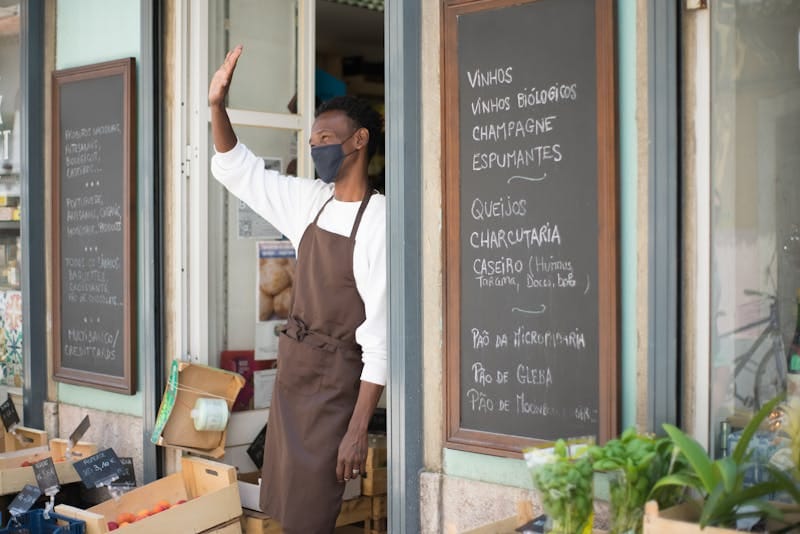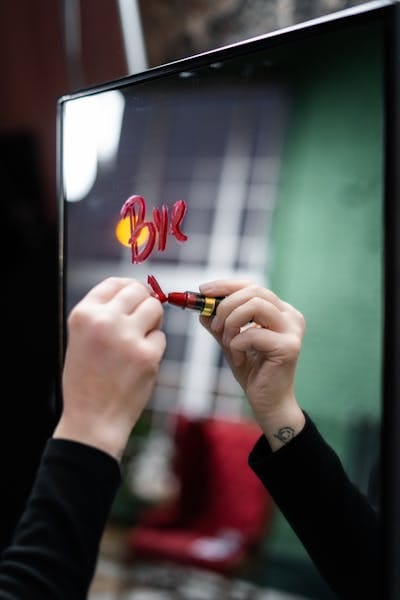+10 Ways to Say Bye in Portuguese
The expression Goodbye in English originated from the sentence God be with ye! It was a common farewell phrase in the 16th century. But with time, it became contracted into a single term.
Today, you can divide it into two English words – good / bye. Still, its intentions are the same. When you depart, you want to wish that the person remains well until you see them again. Along with good morning, good night, and good afternoon, it is one of the first greetings you will learn.
The same happens with Portuguese. The most common Portuguese equivalent to goodbye is Adeus. But as a country known for its warm hospitality and deep-rooted traditions, Portugal has a variety of ways to bid farewell. Today, you will discover over ten ways to say goodbye in European Portuguese.
These common phrases will allow you to navigate social situations with confidence. They will help you understand when to use each one like the natives do. Whether you are a traveler exploring the cobblestone streets of Lisbon or a student immersing yourself in the language, these expressions will enhance your interactions. They will also show respect for local customs and help you take a new step into your new language.
Introduction to Portuguese Goodbyes
Saying goodbye in Portuguese is more than just a simple farewell. The language offers a variety of expressions for different situations and relationships.
Would you love to speak Portuguese like it is your native language? The Journey makes that possible! This course immerses you in authentic European Portuguese, teaching you everyday expressions. You will learn the different ways to say goodbye and much more. Gain the confidence to interact and sound like a native speaker. Start The Journey today!

Saying goodbye in Portuguese is more than just a simple farewell. The language offers a variety of expressions for different situations and relationships.
Why You Should Learn to Say Bye in Portuguese
From casual to formal, each goodbye carries a specific meaning. Understanding these characteristics is crucial to navigating social interactions in Portugal. Doing so will build your confidence as a speaker and help you build stronger connections with natives.
When you learn Portuguese, you will notice that Portuguese goodbyes often convey deep emotions and well-wishes for the future. They can be brief or elaborate, depending on the context. Learning these expressions enhances your language skills and cultural awareness. It is an essential part of mastering Portuguese communication.
Whether you are a traveler or a language learner, knowing how to say goodbye is essential. It leaves a lasting impression and demonstrates your appreciation for Portuguese customs. Start by looking into formal goodbyes in Portuguese.
Formal Goodbyes in Portuguese
In Portuguese, formal goodbyes convey respect and politeness in professional or unfamiliar settings. Adeus
Com licença

Até à próxima
In formal correspondence, Atenciosamente
Informal Ways to Say Goodbye in Portuguese
In European Portuguese, informal goodbyes are as diverse as they are friendly. Tchau
Fica bem
Older people often say Vai com Deus
Slangy Goodbyes in European Portuguese
Slangy goodbyes can add a touch of personality and flair to your conversations. These informal farewells are perfect for casual settings. They also make your interactions feel more natural and authentic.
One popular option is Tchauzinho
Lately, many Portuguese natives started using Estamos juntos
Regional Variations in Portuguese Goodbyes
Portuguese goodbyes vary across provinces, reflecting local cultures and traditions. For example, Vai com Deus

Another expression, Fica bem
Using Goodbyes in Context
Take your Portuguese to the next level with The Journey! This engaging course focuses on authentic European Portuguese through practical, everyday conversations. You will master real-life expressions, including the different ways to say goodbye. Start today, and join the instinctive way to fluent Portuguese communication!
Learn European Portuguese the Instinctive Way!
Meet The Journey – a shift from studying rules to feeling the language. By wrapping pronunciation, grammar, and conversation in an engaging adventure, your brain instinctively picks up the patterns, making fluency effortless and enjoyable.
Start your journey today!
How to Choose Your Perfect Goodbye in Portuguese
Context is crucial when choosing the most appropriate Portuguese goodbye. Time of day influences your choice of farewell expression. For morning departures, you can say Tenha um bom dia

Consider the formality of the situation when selecting your goodbye. Professional settings call for more polite and reserved expressions. Contrarily, casual encounters allow for friendlier, more relaxed goodbyes. If you are unsure what expression to use, choose a neutral one like Adeus
The relationship with the person you are addressing also matters. Close friends might appreciate a warmer, more personal farewell. Acquaintances or strangers require more neutral goodbye phrases. Having this cultural sensitivity is paramount when choosing goodbye phrases.
Finally, as you will see below, the duration until the next meeting can guide your choice of expression. Short-term partings need different goodbyes than long-term separations. Adding well-wishes to your goodbye can also leave a positive lasting impression.
Common Mistakes to Avoid
Discover some slip-ups to steer clear of when saying goodbye in Portuguese. Tchau
Now, about Até breve
- Até amanhã– If you will see someone tomorrow.
- Até para a semana– If you will see them next week.
- Até logo– If you will see them later in the same day.
- Até jáor Até daqui a pouco– If you will see them within the next few minutes or hours.
- Até à próxima– If you are unsure when you will see them next.
- Até qualquer dia– Has the same meaning as Até à próxima
- Até para o ano– If you will see them next year.
- Até breve– If you will see the person soon but do not know when.
Another thing to watch out for is mixing up your daytime goodbyes. Finally, do not forget about tone. Even the right words can sound wrong if said flatly. Remember, in Portuguese culture, farewells are often warm and extended.
A Note on Differences Between Portuguese Language Variants
The two most prevalent Portuguese variants are the European and the Brazilian. There are different ways to say goodbye depending on the variant you are learning. So far, you have explored farewells in Portuguese from Portugal. Now, take a look at what Brazilian natives use.
For example, you might hear Valeu, falou

If you are in a hurry and need to leave quickly, Fui, tchau
Among friends, especially in Brazil, you might hear Até mais
+10 Ways to Say Goodbye in Portuguese
Embracing Portuguese farewells opens doors to authentic cultural experiences. Each goodbye reflects the warmth and hospitality of Portuguese-speaking communities. By learning these expressions, you will navigate social situations with confidence and grace.
Your efforts will be appreciated by locals, fostering deeper connections and friendships. Remember, language learning is a journey, not a destination. Celebrate small victories as you incorporate new phrases into your vocabulary.
Do not be afraid to experiment with different goodbyes in various settings. Listen carefully to native speakers and mimic their intonation and body language. As you become more comfortable, you will find yourself choosing the best expression naturally.
This skill will enrich your travels, work, and relationships in Portuguese-speaking countries. Your Portuguese conversations will become more vibrant and meaningful with each farewell. What is your favorite way to say goodbye in Portuguese? Comment it below!








